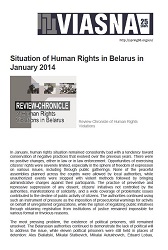
Review-Chronicle of Human Rights Violations in Belarus in January 2014
Compilation of 12 monthly reports as published by VIASNA Center for Human Rights
More...We kindly inform you that, as long as the subject affiliation of our 300.000+ articles is in progress, you might get unsufficient or no results on your third level or second level search. In this case, please broaden your search criteria.

Compilation of 12 monthly reports as published by VIASNA Center for Human Rights
More...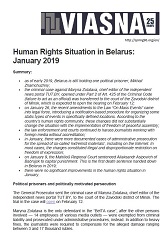
Compilation of 12 monthly reports of 2019 as published by VIASNA Center for Human Rights
More...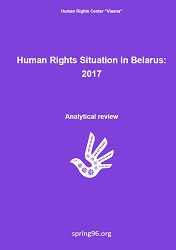
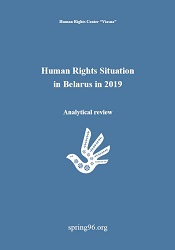
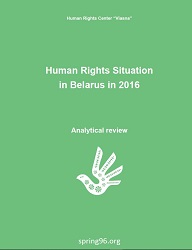
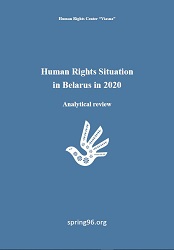
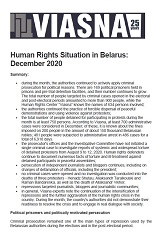
Compilation of 12 monthly reports of 2020 as published by VIASNA Center for Human Rights
More...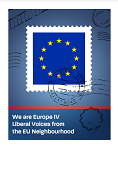
In the past, it would have been impossible to discuss enlargement of the European Union to the East and Western Balkans without determining whether accession to the EU was still an option. The issue has been discussed in the aforementioned regions and within the EU. While some were arguing that ever-expanding EU is extremely challenging, others found it to be rather fortunate and essential for strengthening the EU's geopolitical position. However, most people believe that the process was, at most, comatose. The Russian invasion of Ukraine has a wide-ranging impact on the entire world, and it has resuscitated discussions about potential EU enlargement. The expert analyses are mainly focused on who or what has caused the shift in EU processes after a decade of stagnation. If the EU enlargement is not an option for EU's neighbouring countries, then these regions will become of strategic importance for other geopolitical interests, particularly those of Russia and China.
More...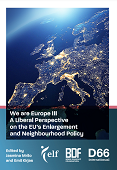
When European Parliament voted in favour of the von der Leyen Commission two years ago, European Commission (EC) had an aspiring role on international stage and promised to become a “Geopolitical Commission”. Enthusiastic upon her election, Ursula von der Leyen, the new President of the European Commission, explained that the College of Commissioners will now report on “external action” during their weekly meetings and that all commissioner cabinets plan to form a new “External Coordination” body which will bridge their external and internal policy work. They have inherited from the previous composition of the Commission the EU Enlargement Policy. In EC communication from May 20192 , this ambitious goal was elaborated stating that the “frontrunners in the accession negotiations could potentially be ready for membership in a 2025 perspective”.
More...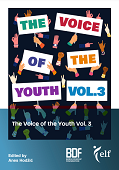
The recent global events have had significant impacts on democracy and liberty worldwide, and the ideals of such political concepts are now most affected since the end of the Cold war. According to the current data of Freedom House Index, it has been estimated that eight out of ten people live in countries that either have “partly” or “not free” status. In many countries, radical ideas are gaining popularity and citizens vote for the parties that promote far-right or far-left politics in search of a quick solution for their problems. In this context, fighting for ideas of liberty, equality and democracy can be considered revolutionary, and that is the essence of what CPLA participants have discussed this year.
More...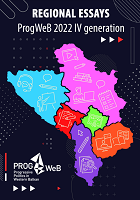
This paper analyses the political representation of youth in the Western Balkans and their participation in political parties, elections, intra-party quota systems, and whether the political parties find quotas as a best solution for increasing political participation of youth and their political credibility. The literature review of other countries that use youth quotas as inclusion-instruments to ensure a wider perspective on how youth political representation should look and where should it derive from is also presented Balkan countries did not institutionalize quota systems in their public institutions or introduced it as a criterion for the creation of election lists. However, most parties voluntarily include representatives of their youth wing organizations in their election lists. Nevertheless, there are very few successful outcomes of such practice where young candidates got elected and represented youth interests in high level institutions such as the Parliament. This comparative report shows that countries that used youth quotas faced similar problems, as the young candidates who got elected as the result of the implemented quota system often did not have proper political influence and they were influenced by their more experienced fellow party members. Aside from quotas, one of the final recommendations of this research is that political parties should introduce mechanisms of informal education that will provide knowledge and experience to young candidates so that they can handle better the situations that are likely to occur within the party and during election campaigns.
More...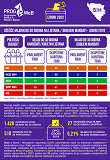
Pozicija mladih, kako u statutima političkih subjekata tako i na izbornim listama i učešću u izbornom procesu, determinirana je odlukama viših stranačkih tijela, najčešće predsjedništva ili određenih odbora koji mlade zbog određenih pravila i normiranosti izbornog sistema moraju kandidirati na izborne liste. Ipak, najčešće mladi u gotovo 95% slučajeva budu isključivo kandidatikinje, a iznimno rijetko i donosiociteljice odluka na političkom nebu Bosne i Hercegovine
More...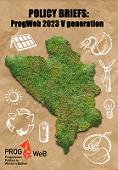
ProgWeB (Progressive Politics in Western Balkan) is a year-long educational initiative designed for aspiring young liberals and social democrats coming from the Western Balkans region. The primary objective of the Academy is to educate and empower politically active young individuals by equipping them with knowledge and skills needed for their future political involvement within their respective political parties and in the broader political landscape in their countries. This project is structured into three modules, covering practical and theoretical lectures, interactive discussions, workshops, and collaborative group assignments conducted between these modules. In 2023, ProgWeb celebrated its fifth generation, bringing together young activists from Albania, Bosnia and Herzegovina, Kosovo, North Macedonia, and Serbia. The programme hosted meetings in Montenegro (June), Serbia (July), and a concluding event in Bosnia and Herzegovina (October). The common focus for all participants this year was centered around green policies and a green agenda. This emphasis allowed participants to develop their own national projects addressing these topics and to create policy briefs that are included in this publication. With the guidance and mentorship of their supervisors, our young participants formulated ideas and policies aimed at fostering a more progressive and prosperous Western Balkans region.
More...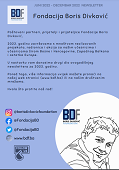
Poštovani partneri, prijatelji i prijateljice Fondacije Boris Divković, 2022. godinu završavamo s mnoštvom realizovanih projekata, radionica i akcija s našim učesnicima i učesnicama širom Bosne i Hercegovine, Zapadnog Balkana i ostatka Europe. U nastavku vam donosimo drugi dio ovogodišnjeg newslettera za 2022. godinu. Pored toga, više informacija uvijek možete pronaći na našoj web stranici (www.bdf.ba) ili na našim društvenim mrežama. Hvala što pratite naš rad!
More...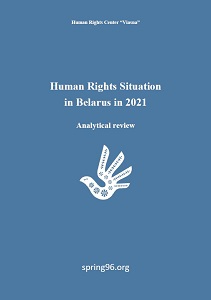
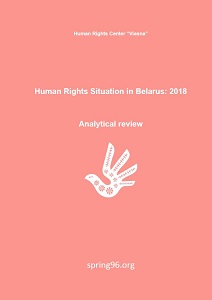
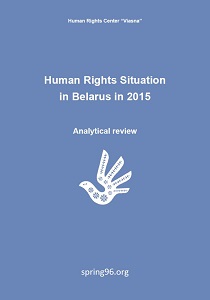
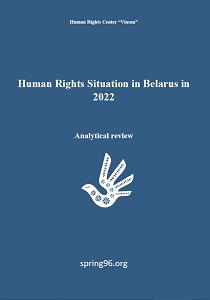
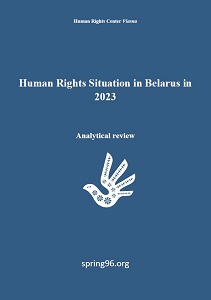
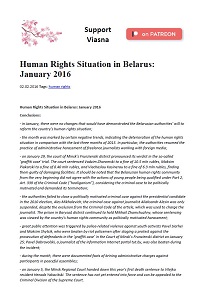
Compilation of the monthly 2016 Human-Rights-Reports as published by VIASNA Human Rights Center
More...